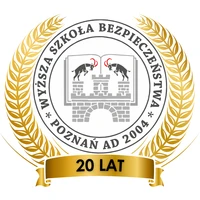Information
Information is any entity or form that provides the answer to a question of some kind or resolves uncertainty. It is thus related to data and knowledge, as data represents values attributed to parameters, and knowledge signifies understanding of real things or abstract concepts. As it regards data, the information's existence is not necessarily coupled to an observer (it exists beyond an event horizon, for example), while in the case of knowledge, the information requires a cognitive observer.
Information Science
Information science is a field primarily concerned with the analysis, collection, classification, manipulation, storage, retrieval, movement, dissemination, and protection of information. Practitioners within and outside the field study application and usage of knowledge in organizations along with the interaction between people, organizations, and any existing information systems with the aim of creating, replacing, improving, or understanding information systems. Historically, information science is associated with computer science, library science, and telecommunications. However, information science also incorporates aspects of diverse fields such as archival science, cognitive science, commerce, law, museology, management, mathematics, philosophy, public policy, and social sciences.
Library
A library is a collection of sources of information and similar resources, made accessible to a defined community for reference or borrowing. It provides physical or digital access to material, and may be a physical building or room, or a virtual space, or both. A library's collection can include books, periodicals, newspapers, manuscripts, films, maps, prints, documents, microform, CDs, cassettes, videotapes, DVDs, Blu-ray Discs, e-books, audiobooks, databases, and other formats. Libraries range in size from a few shelves of books to several million items. In Latin and Greek, the idea of a bookcase is represented by Bibliotheca and Bibliothēkē (Greek: βιβλιοθήκη): derivatives of these mean library in many modern languages, e.g. French bibliothèque.
Science
Science (from Latin scientia, meaning "knowledge") is a systematic enterprise that builds and organizes knowledge in the form of testable explanations and predictions about the universe.
Information
We don't know a millionth of one percent about anything.
Thomas Edison, As quoted in Golden Book (April 1931), according to Stevenson's Book of Quotations (Cassell 3rd edition 1938) by Burton Egbert Stevenson.
Information
When action grows unprofitable, gather information; when information grows unprofitable, sleep.
Ursula K. Le Guin (b. 1929), American Science Fiction author. The Left Hand of Darkness, Ch. 3 (1969).
Science
Take a look at George Gamow, who is now recognized as one of the great cosmologists of the last hundred years. I speculate that he probably didn't win the Nobel Prize because people could not take him seriously. He wrote children's books. His colleagues have publicly stated his writing children's books on science had an adverse effect on his scientific reputation, and people could not take him seriously when he and his colleagues proposed that there should be a cosmic background radiation, which we now know to be one of the greatest discoveries of 20th-century physics.
Michio Kaku, in "Borrowed Time: Interview with Michio Kaku".

